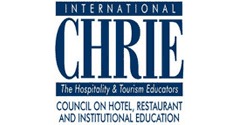
Friday, 30 July
Title
A Predictive Model of Behavioral Intention to Spa Visiting: An Extended Theory of Planned Behavior
Information
Spa is one of the fastest-growing market segments in the hospitality and tourism industry, but little attention has been paid to consumers’ perceived benefits and motivational influences. An aim of the predictive model testing was to examine consumers’ behavioral intention to spa visiting, by applying the extended theory of planned behavior. The theoretical model of spa visiting was tested and confirmed via Structural Equation Modeling (SEM). Data was collected from athletic club members via a field survey. Results indicated that “perceived behavioral control,” “past experience,” and “spiritual wellness” appeared to be significant predictors to behavioral intention to spa visiting. Marketing implications of the study are discussed.
Start Date
30-7-2010 10:15 AM
End Date
7-30-2010 11:15 AM
wf_yes
A Predictive Model of Behavioral Intention to Spa Visiting: An Extended Theory of Planned Behavior
Spa is one of the fastest-growing market segments in the hospitality and tourism industry, but little attention has been paid to consumers’ perceived benefits and motivational influences. An aim of the predictive model testing was to examine consumers’ behavioral intention to spa visiting, by applying the extended theory of planned behavior. The theoretical model of spa visiting was tested and confirmed via Structural Equation Modeling (SEM). Data was collected from athletic club members via a field survey. Results indicated that “perceived behavioral control,” “past experience,” and “spiritual wellness” appeared to be significant predictors to behavioral intention to spa visiting. Marketing implications of the study are discussed.